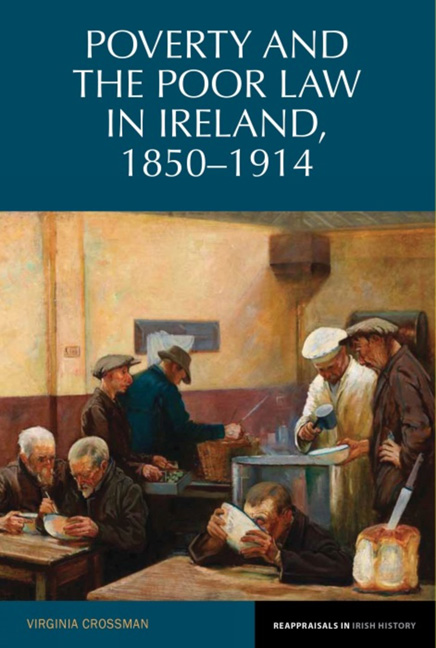Book contents
- Frontmatter
- Contents
- List of Figures
- List of Tables
- List of Maps
- Acknowledgements
- Introduction
- Chapter 1 Concepts of Poverty and Poor Relief
- Chapter 2 Context and Trends
- Chapter 3 Outdoor Relief
- Chapter 4 The Workhouse
- Chapter 5 The Sick, Infirm and Lunatics
- Chapter 6 Single Mothers and Prostitutes
- Chapter 7 Mendicancy and Vagrancy
- Conclusion
- Note on statistics and Sources
- Bibliography
- Index
Chapter 6 - Single Mothers and Prostitutes
- Frontmatter
- Contents
- List of Figures
- List of Tables
- List of Maps
- Acknowledgements
- Introduction
- Chapter 1 Concepts of Poverty and Poor Relief
- Chapter 2 Context and Trends
- Chapter 3 Outdoor Relief
- Chapter 4 The Workhouse
- Chapter 5 The Sick, Infirm and Lunatics
- Chapter 6 Single Mothers and Prostitutes
- Chapter 7 Mendicancy and Vagrancy
- Conclusion
- Note on statistics and Sources
- Bibliography
- Index
Summary
Many of those who turned to the poor law for assistance were people whose conduct or lifestyle had excluded them from respectable society. Unmarried mothers, prostitutes and vagrants all resorted to the workhouse on a regular basis. Over the second half of the nineteenth century, declining numbers of able-bodied inmates focused greater attention on these groups as they became more visible within workhouse populations. Poor law regulations required the relief of destitution irrespective of its cause or the character of the destitute person, much to the annoyance of many guardians, officials and ratepayers. As a member of the Galway Board of Guardians complained when an elderly man was refused indoor relief on the grounds that he was not destitute, ‘it was unfair that a man such as the applicant should be refused admission when “strumpets” of girls who should not be allowed in were never refused’. Procedures for the admission and management of what were seen as problem groups varied according to local circumstances and sentiment. This chapter explores these variations with respect to unmarried mothers and prostitutes. In so doing, it provides both a fresh perspective on local responses to poverty and distress, and new insights into gender perceptions and attitudes to sexuality within Irish society.
Respectability and sexual morality were intimately connected. Irish women were celebrated for their purity and Irish men commended for the respect shown to women. Any remnants of a more ribald recreational culture and more relaxed sexual attitudes amongst the Irish peasantry were believed to have been eradicated by the shock of the Famine, and replaced by a more disciplined social culture and stricter social mores associated with and promoted by the Catholic Church. Irish society embraced the social values often associated with Victorian England, including a sexual division of labour and sexual double standard. Women's employment was increasingly within the home and their interests were assumed to be almost wholly domestic. While it was acceptable for men to be sexually active, this was only acceptable for women within marriage. The consequences for women perceived to have transgressed against the strict moral codes governing sexual relations, were marginalisation and social exclusion. A woman who lost her reputation, it was claimed, lost her place in society and was rejected by her family and her community. Evidence given to the Whately Commission stressed the difficulties faced by unmarried mothers.
- Type
- Chapter
- Information
- Poverty and the Poor Law in Ireland, 1850–1914 , pp. 168 - 197Publisher: Liverpool University PressPrint publication year: 2013



